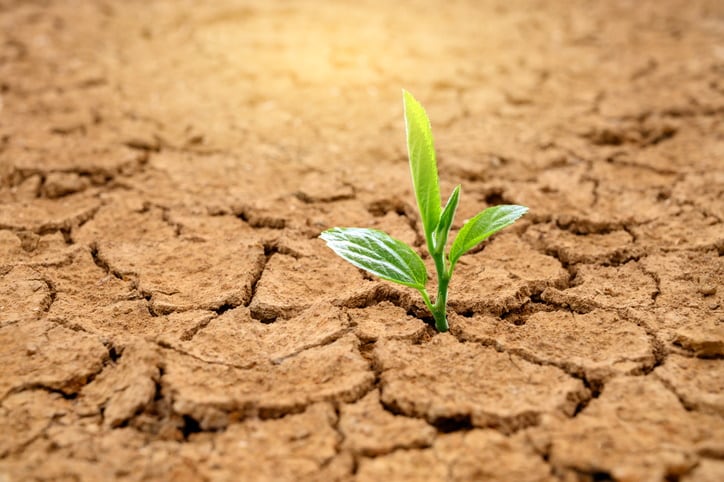The EU sustainability reporting standards (ESRS) submitted to the European Commission by technical advisor EFRAG were published yesterday (29 November). Their aim is to provide a common European framework on corporate disclosure of sustainability efforts.
The recommendations were developed following an extensive multi stakeholder process and were approved without a dissent by EFRAG’s Sustainability Reporting Board, which includes representatives of Accounting Standards Committee of Germany, the Autorité des Normes comptables of France, the Dutch Accounting Standards Board, Organismo Italiano di Contabilità (OIC), as well as European stakeholders including Accountancy Europe, European Issuers, EFAMA, European Banking Federation, and representatives of civil society and of the European Trade Union Confederation, among others.
“Our goal has been to strike the right balance between a game-changing step forward and a pragmatic implementation and to foster global sustainability reporting progress while taking full account of the feedback received through our public consultation and deliberations. We are confident that we will all in due course benefit from this collective effort towards more transparency and accountability,” said Kerstin Lopatta, former EFRAG Acting SRB Chair.
The next stage will see the EC consult with EU bodies and Member States on the draft standards, before adopting the final ESRS as delegated acts in June 2023.
ESRS make lifecycle analysis the 'cornerstone' of sustainability reporting: NGOs
The update has been welcomed by a coalition of sustainability experts and NGOs, including the likes of WWF, Share Action and CDP. “They represent a major improvement for companies as well as for users of sustainability information and address the biggest problems in quality and reliability of corporate reporting… They are indispensable to get relevant and reliable reporting on companies’ climate transition plans and their alignment with the 1.5°C goal, the exposure of companies to sustainability-related financial risks, as well as to actual and potential severe impacts on people and the environment in the value chain, and companies’ management of such impacts and risks, among others. This is essential to help investors, consumers, financial institutions and, in fact, society as a whole, to make the switch to a sustainable economy that operates within planetary boundaries,” the organisations said in a joint statement.
While they did highlight some areas of weakness, the NGOs and sustainability reporting experts noted that the proposals align with the draft international sustainability financial disclosure standards developed by the ISSB and added that disclosures relating to climate change mitigation and adaption include scope one, two and three emissions and ‘are always mandatory’. This, they said, will allow reporting systems to capture the ‘true carbon footprint’ of large parts of the economy.
The proposal also excludes ‘shady offsets, carbon credits and carbon removals’ from the corporation’s climate targets as well as confirming life cycle analysis is ‘the cornerstone’ in assessing environmental sustainability in the EU.
“The proposed ESRS lay down an urgently needed baseline for sustainability reporting which is aligned with international standards and addresses the most pressing conceptual and methodological challenges companies are facing. Therefore, we call for the adoption of the ESRS framework by the European Commission and endorsement by the EU Parliament and Member States. We warn against further cuts into the proposed standards, which would severely undermine its functionality and hinder EU’s efforts to create a more sustainable and just economy,” the coalition stated.
But Green Claims Directive delay points to argument over methodology
However, separate news out of Brussels yesterday appears to give a more mixed view of the role that methodologies like life cycle analysis (LCA) play in the EU’s approach to measuring and communicating progress on sustainability targets and combatting greenwashing.
“There are more than 200 environmental labels active in the EU, and more than 450 active worldwide; there are more than 80 widely used reporting initiatives and methods for carbon emissions only. Some of these methods and initiatives are reliable, some not; they are variable in the issues they cover,” according to the EC. “Another issue is greenwashing – companies giving a false impression of their environmental impact or benefits. Greenwashing misleads market actors and does not give due advantage to those companies that are making the effort to green their products and activities. It ultimately leads to a less green economy.”
However, European regulators look likely to postpone the the Substantiating Green Claims Directive, which aims to tackle these issues. In particular, the delay will allow regulators to re-evaluate the relevance of LCA such as the product environmental footprint (PEF) methodology to assess green claims and measure the environmental footprint of bio-sourced products like food and textiles.
“Fighting greenwashing, providing meaningful information to consumers on the impact of the food products they buy, and incentivising producers to adopt truly sustainable practices, are essential to transition towards sustainable food systems,” Jan Plagge, President of industry body IFOAM Organics Europe, said in response to the news.
However, Plagge welcomed the delay arguing that current methodology to calculate the environmental footprint of food production is insufficient. “These objectives cannot be achieved on the basis of the PEF methodology that disregards the use of pesticides and the impact of different production methods on biodiversity, also failing to consider the complexity of agri-food systems,” he stressed.
Highlighting the weaknesses that the organic sector sees in PEF methods, IFOAM Director Eduardo Cuoco added: “The PEF does not properly consider the use of inputs like pesticides, negative and positive externalities of different agriculture production methods on biodiversity, soil quality, deforestation nor planetary boundaries. IFOAM Organics Europe supports the idea of protecting consumers from deceiving green claims on food but believes this should be properly discussed. The impact of inputs used should be considered while providing meaningful information to consumers should be part of the assessment.”
As ever, the devil is in the detail, with different actors in the agri-food system backing methodologies to calculate sustainability reporting that best suit their own agendas. But these distinctions are vital to policy formulation and the development of a future fit food system.
“Different methodologies point towards different desirable futures for the agriculture and food sector, and this should be openly discussed. The EU needs an open debate on the best methodologies to provide detailed, fair, and unbiased information to consumers on the environmental impacts of different methods of production of agri-food products – at the same time considering the key concerns of European citizens and the priorities of the Farm to Fork and Biodiversity strategies,” argued Eric Gall, IFOAM Organics Europe’s Deputy Director.




